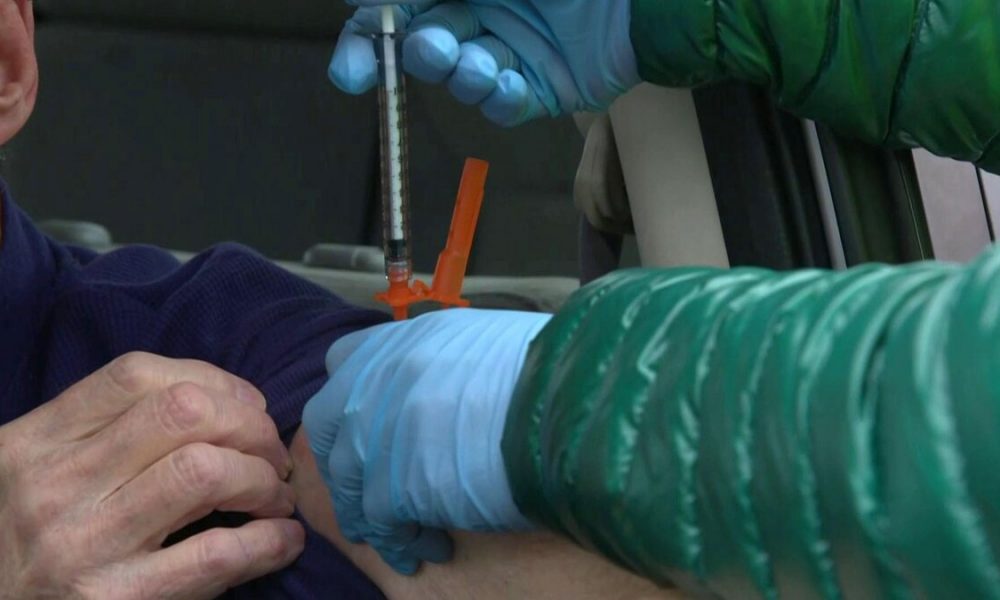On Sunday night, President Donald Trump announced emergency authorization from the Food and Drug Administration to treat COVID-19 patients with convalescent plasma. The FDA said the “known and potential benefits of the product outweigh the known and potential risks of the product”.
What We Know:
- The announcement came Sunday night on the heels of White House officials complaining that the FDA was politically motivated to delay the approval of a vaccine and therapeutics to the coronavirus. Trump put himself at the center of the FDA’s announcement of authorization at the news conference Sunday, the eve of the Republican National Convention.
- The FDA emphasized that this authorization is not the same as full FDA approval, but the authorization will make it easier for some patients to obtain the treatment. Blood plasma is taken from patients who have recovered from the coronavirus and is rich in antibodies and it is believed that it may provide benefits to those currently battling the virus. The treatment has not received full FDA approval yet because the evidence so far has not been conclusive about whether it works, when to administer it, and what dose is needed.
- In a letter describing the emergency authorization, the chief scientist for the FDA, Denise Hinton, said, “COVID-19 convalescent plasma should not be considered a new standard of care for the treatment of patients with COVID-19. Additional data will be forthcoming from other analyses and ongoing, well-controlled clinical trials in the coming months.”
- Trump made it clear that he was eager to showcase the good news, allowing him to start the Republican National Convention with momentum. He and his aides called the move “a breakthrough” and a “major” development, using the White House briefing room to make the announcement. Reporters noticed that Trump was on his best behavior during the announcement in which he stuck to his talking points, deferred to the head of the FDA, Stephen Hahn, and only took three questions from reporters.
- Accusations from the White House that claimed the FDA was purposefully delaying coronavirus vaccines and progress due to political motivation were presented without evidence and part of the latest assault from Trump’s team on what he refers to as the “deep state” bureaucracy. Trump took to Twitter to further spread these accusations, tweeting, “The deep state, or whoever, over at the FDA is making it very difficult for drug companies to get people in order to test the vaccines and therapeutics. Obviously, they are hoping to delay the answer until after November 3rd. Must focus on speed, and saving lives!”
- In an interview earlier Sunday on “This Week” on ABC, White House chief of staff Mark Meadows did not provide specifics but said that the White House has “looked at a number of people that are not being as diligent as they should be in terms of getting to the bottom of it”. Adding later in the interview, “This president is about cutting red tape. He had to make sure that they felt the heat. If they don’t see the light, they need to feel the heat because the American people are suffering.”
- Earlier this month, Mayo Clinic researchers reported a strong belief that blood plasma from COVID-19 survivors could help other infected patients recover. It reported preliminary data from 35,000 coronavirus patients who were treated with plasma and said there were “fewer deaths among people given plasma within three days of diagnosis and also among those given plasma containing the highest levels of virus-fighting antibodies”. But, it was not a formal study and therefore cannot be considered proof. The patients were treated in different ways in hospitals around the country so the results cannot prove that it was the plasma, not the other care they received, that was the reason for their health improvement.
- So far, over 70,000 patients in the U.S. have been given plasma as it is a century-old approach to fend off flu and measles before vaccines. It has previously been a go-to tactic when new diseases come along, and history suggests it works against some, but not all, infections. As an attempt to limit a possible run on the limited supply of convalescent plasma after the announcement, government officials have been working to obtain plasma as well as work with corporate partners and nonprofit organizations to generate plasma donation from previously infected patients.
- Critics of Trump, along with health experts, are skeptical of the timing of the announcement. Benjamin Corb, of the American Society for Biochemistry and Molecular Biology, called it “conspicuous timing” saying, “President Trump is once again putting his political goals ahead of the health and well-being of the American public”. Hahn, who called the development “promising,” said that this has been in the works for several weeks and that Trump did not speak to him about the timing of the announcement.
Rigorous studies are currently underway around the country to test the effectiveness of plasma. However, the studies are facing difficulties as the virus waxes and wanes in different cities and some patients have requested to simply receive the plasma instead of agreeing to a study that might give them the placebo.



